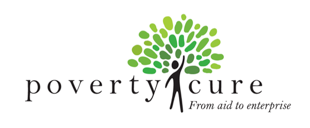The Cost of Corruption
Besides being immoral, corruption tends to be an inefficient way to bring together buyers and sellers. Because it is by definition illegal—even when it is common and accepted—corruption naturally tends to be private and secretive. In a private arrangement, there is no guarantee that the good or service being bought carries a market price. That is, another buyer may be willing to pay more, or another seller may be willing to sell for less, but it is impossible to know because the market is not public. Further, resources are expended in the effort to maintain the secrecy of the transactions. Finally, corrupt contracts, because they are illegal, must be enforced in extralegal fashion. Thus a corrupt system is an inherently inefficient system.
In some cases corruption might be reasonably viewed as the most expedient option. For example, in a country with excessive bureaucratic hurdles to starting a business, bribery may be a way to speed the process. This is only a stop gap, of course, since it leaves in place a system that serves the corrupt by providing numerous opportunities to demand bribe money and to tilt the playing field to the advantage of friends, family and political patrons.
Corruption as an Obstacle to Development
The monetary cost of corruption is slower economic growth. Studies have shown that decreasing corruption leads to significant gains in foreign direct investment, which is one of the chief spurs to development. Economist Shan-Jin Wei has argued that corruption is proportionately more damaging to economic growth than is taxation of business. In terms of its discouraging effect on investment, Wei found, “An increase in the corruption level from that of Singapore to that of Mexico is equivalent to raising the tax rate on multinationals by over twenty percentage points.”
Turning international business investment away is only one of several ways that corruption stifles growth. “Corruption and Poverty,” a review essay commissioned by USAID, summarizes its findings with a long list of negative effects: “Corruption impedes economic growth by discouraging foreign and domestic investment, taxing and dampening entrepreneurship, lowering the quality of public infrastructure, decreasing tax revenues, diverting public talent into rent-seeking, and distorting the composition of public expenditure.” (Rent seeking is an economics term referring to any effort to profit not by adding value but by manipulating a market’s social or political environment in order to gain an artificial advantage.)
The authors of the review also point out that corruption exacerbates income inequality. They find that this link is due to several negative effects of corruption, including distortion of the “legal and policy frameworks allowing some to benefit more than others”; “unfair distribution of government resources and services”; and “lower income households (and businesses) pay[ing] a higher proportion of their income in bribes” than wealthier households.
The Corruption Perception Index
In light of these observations, it is no surprise that nations with high levels of public sector corruption face major development challenges (while nations with relatively low levels of political corruption tend to thrive economically). This is apparent from even a cursory look at Transparency International’s Corruption Perception Index (CPI), which measures the reputations of national governments with respect to corruption. In 2017, the five worst-scoring countries on the CPI were Yemen, Afghanistan, Syria, South Sudan, and Somalia. The top five were New Zealand, Denmark, Finland, Norway, and Switzerland.
Corruption as an Immoral Choice
Although political reforms may diminish inducements to corruption, it is important to remember that every instance of corruption is an individual decision. Even where corruption is common and widely accepted, people can choose not to engage in it. And even where it is rare and stigmatized, people may initiate a corrupt transaction.
Corruption is a serious violation of justice, because it benefits some at the expense of others without legitimate reason. It erodes the bonds of trust between people within a community, and between people and the government officials who are supposed to represent their interests. Corruption also tends to favor the well-connected while locking out those who are poor and lack high-level connections.
Fighting Corruption
One strategy for combating corruption is simply to limit the extent of state authority. Expansive regulation (such as business licensing) creates ample opportunity and temptation to rig the process in favor of one or another participant. Where government has narrowly defined powers that keep it out of such decision-making, the rule of law is encouraged and corruption discouraged.
Thus, it’s important that government regulatory law curtail the discretion permitted to individual officials. Where gatekeepers in the bureaucracy have wide leeway to interpret and apply the law, the potential for corruption increases. This strategy is no substitute for virtue, of course, since a measure of interpretive leeway is necessary and inevitable in any system of government.
The costs of fighting corruption through government channels also must be realistically assessed. Government anti-corruption initiatives may be costly and may possess some of the same features that promoted corruption in the first place (e.g., layers of bureaucracy and limited resources that force bureaucrats to choose who to focus on and who to ignore).
Thus, while corruption must never be viewed as an acceptable practice, advocates of the rule of law should be realistic about the prospects for its elimination. The inherent weaknesses in political initiatives to limit political corruption also should serve as a spur for cultures to combat corruption by other means, as through the work of civil institutions (e.g., churches, fraternal organizations) in emphasizing the cultivation of personal virtue. When people become convinced that corruption is harmful to society and damaging to their own moral integrity, and when they possess the courage to act accordingly, then a culture is better positioned to make progress in the fight against corruption in politics and the market.


